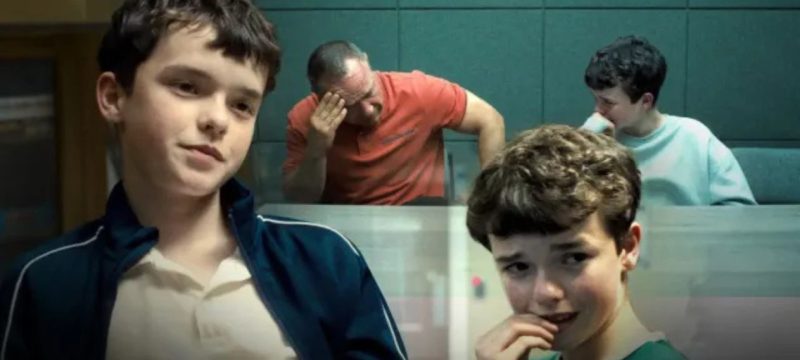The Netflix series “Adolescence” has ignited a global dialogue on the profound effects of social media, online misogyny, and youth radicalization. Released on March 13, 2025, the four-episode drama has captivated audiences worldwide, amassing over 96 million views and topping charts in numerous countries.
The narrative centers on 13-year-old Jamie Miller, who becomes embroiled in a tragic incident, shedding light on how digital platforms and harmful online ideologies can shape adolescent behavior.
Read more: Anurag Kashyap Slams Netflix India for ‘Dishonest’ and ‘Morally Corrupt’ Practices
Plot and Themes: “Adolescence” follows Jamie, a teenager who, influenced by online misogynistic content and radical forums, becomes involved in a violent act. The series delves into the complexities of teenage psychology, the allure of extremist online communities, and the impact of digital content on young minds. It challenges viewers to confront the ease with which adolescents can be drawn into harmful ideologies and the role of society in addressing this issue.

Global Reception: The show’s unflinching portrayal of contemporary issues has resonated deeply with audiences and critics alike. It has sparked conversations about the responsibilities of digital platforms, the influence of online personalities, and the need for comprehensive digital education. Educators and parents have praised the series for its relevance, while also expressing concerns about its intense content.
Reactions from Dignitaries:
- Keir Starmer, UK Prime Minister: Starmer acknowledged the series’ impact, stating that it “shines a light on misogyny, on online content, and this sense of children, particularly boys, getting drawn into this world.” He emphasized the need for a societal response to these challenges and supported the initiative to screen the series in schools to foster discussion.
- Esther Ghey, Mother of Brianna Ghey: Following the tragic death of her daughter, Esther Ghey has advocated for a nationwide ban on mobile phones in schools. She highlights the dangers of unrestricted access to online content and supports the themes addressed in “Adolescence,” which reflect her concerns about digital influences on youth.
- Stephen Graham, Actor and Co-Writer: Graham expressed a desire for the series to be shown in educational and governmental settings, stating, “I want it to be shown in schools, I want it to be shown in Parliament. It’s crucial because this is only going to get worse.” He emphasized the urgency of addressing the issues presented in the drama.

Critical Perspectives: While many commend the series for its timely exploration of digital-age challenges, some critics argue that it may oversimplify complex issues. For instance, columnist Kylie Lang suggests that the portrayal of boys as inevitably drawn to violence due to online influences might perpetuate harmful stereotypes. She calls for a more nuanced understanding that considers various societal factors contributing to youth behavior.
Conclusion: “Adolescence” serves as a catalyst for essential conversations about the intersection of technology, youth culture, and societal values. It challenges viewers to reflect on the digital content consumed by adolescents and the broader implications for society. The diverse reactions from public figures underscore the series’ significance in prompting policy discussions, educational reforms, and a reevaluation of digital content regulations. As society grapples with the realities of online influence, “Adolescence” provides a poignant lens through which to examine these pressing issues.









